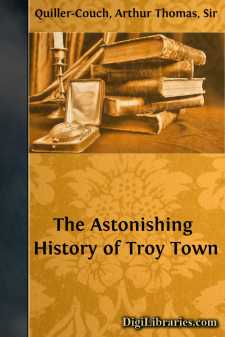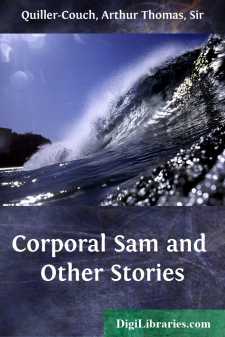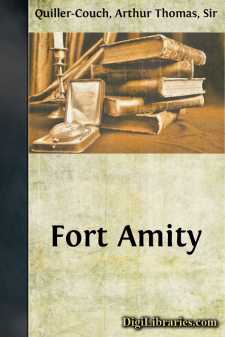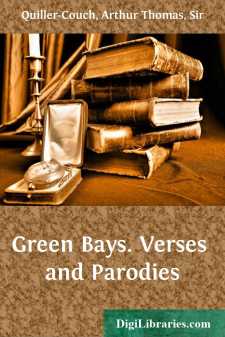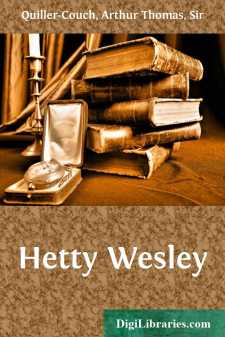Categories
- Antiques & Collectibles 13
- Architecture 36
- Art 48
- Bibles 22
- Biography & Autobiography 813
- Body, Mind & Spirit 142
- Business & Economics 28
- Children's Books 13
- Children's Fiction 10
- Computers 4
- Cooking 94
- Crafts & Hobbies 4
- Drama 346
- Education 46
- Family & Relationships 57
- Fiction 11828
- Games 19
- Gardening 17
- Health & Fitness 34
- History 1377
- House & Home 1
- Humor 147
- Juvenile Fiction 1873
- Juvenile Nonfiction 202
- Language Arts & Disciplines 88
- Law 16
- Literary Collections 686
- Literary Criticism 179
- Mathematics 13
- Medical 41
- Music 40
- Nature 179
- Non-Classifiable 1768
- Performing Arts 7
- Periodicals 1453
- Philosophy 64
- Photography 2
- Poetry 896
- Political Science 203
- Psychology 42
- Reference 154
- Religion 513
- Science 126
- Self-Help 84
- Social Science 81
- Sports & Recreation 34
- Study Aids 3
- Technology & Engineering 59
- Transportation 23
- Travel 463
- True Crime 29
Arthur Thomas Quiller-Couch
Arthur Thomas Quiller-Couch (1863-1944) was a renowned British writer and literary critic, best known for his influential work on English literature. He authored the classic "The Oxford Book of English Verse" and significantly contributed to the field of literary studies through his lectures at the University of Cambridge, where he held the position of King Edward VII Professor of English Literature. Quiller-Couch, often writing under the pen name "Q," was also a prolific novelist and short story writer, celebrated for his skillful storytelling and keen insight into human nature.
Author's Books:
Sort by:
CHAPTER I. "Any news to-night?" asked Admiral Buzza, leading a trump. "Hush, my love," interposed his wife timidly, with a glance at the Vicar. She liked to sit at her husband's left, and laid her small cards before him as so many tributes to his greatness. "I will not hush, Emily. I repeat, is there any news to-night?" Miss Limpenny, his hostess and vis-a-vis, finding the...
more...
CHAUCER March 17, 1894. Professor Skeat's Chaucer. After twenty-five years of close toil, Professor Skeat has completed his great edition of Chaucer. It is obviously easier to be dithyrambic than critical in chronicling this event; to which indeed dithyrambs are more appropriate than criticism. For when a man writes Opus vitæ meæ at the conclusion of such a task as this, and so lays down his...
more...
CHAPTER I. I FIND MYSELF A FOUNDLING. My earliest recollections are of a square courtyard surrounded by high walls and paved with blue and white pebbles in geometrical patterns—circles, parallelograms, and lozenges. Two of these walls were blank, and had been coped with broken bottles; a third, similarly coped, had heavy folding doors of timber, leaden-grey in colour and studded with black...
more...
CHAPTER I. Whatever claims this story may have upon the notice of the world, they will rest on no niceties of style or aptness of illustration. It is a plain tale, plainly told: nor, as I conceive, does its native horror need any ingenious embellishment. There are many books that I, though a man of no great erudition, can remember, which gain much of interest from the pertinent and appropriate comments...
more...
PROLOGUE. A week ago, my friend the Journalist wrote to remind me that once upon a time I had offered him a bed in my cottage at Troy and promised to show him the beauties of the place. He was about (he said) to give himself a fortnight's holiday, and had some notion of using that time to learn what Cornwall was like. He could spare but one day for Troy, and hardly looked to exhaust its...
more...
CHAPTER I. Sergeant David Wilkes, of the First (Royal) Regiment of Foot—third battalion, B Company—came trudging with a small fatigue party down the sandy slopes of Mount Olia, on the summit of which they had been toiling all day, helping the artillerymen to drag an extra 24-pounder into battery. They had brought it into position just half an hour ago, and already it had opened fire along with...
more...
AUDIENCE AND INTERLOCUTORS. Lieut. John Polkinghorne. R.F.A., of the Battery.Sec. Lieut. Samuel Barham, M.C. R.F.A., of the Battery.Sec. Lieut. Percy Yarrell-Smith. R.F.A., of the BatterySec Lieut. Noel Williams, R.F.A., attached for instruction. But military duties usually restricted the audience to two at a time, though there were three on the night when Barham (Sammy) set his C.O. going with a...
more...
CHAPTER I. MALBROUCK S'EN VA-T'EN GUERRE. "So adieu, Jack, until we meet in Quebec! You have the start of us, report says, and this may even find you drinking his Majesty's health in Fort Carillon. Why not? You carry Howe, and who carries Howe carries the eagles on his standards; or so you announce in your last. Well, but have we, on our part, no vexillum? Brother Romulus presents...
more...
IN A COLLEGE GARDEN. Senex. Saye, cushat, callynge from the brake, What ayles thee soe to pyne? Thy carefulle heart shall cease to ake When dayes be fyne And greene thynges twyne: Saye, cushat, what thy griefe to myne? Turtur. Naye,...
more...
PROLOGUE. "For what is a man profited, if he shall gain the whole world and lose his own soul? or what shall a man give in exchange for his soul?" At Surat, by a window of his private office in the East India Company's factory, a middle-aged man stared out upon the broad river and the wharves below. Business in the factory had ceased for the day: clerks and porters had gone about their own...
more...


